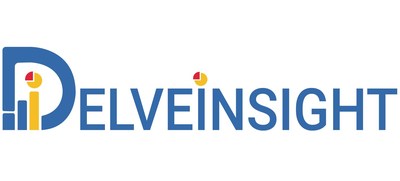The alpha-1 antitrypsin deficiency market size shall grow during the forecast period (2023–2032) due to the launch of upcoming therapies and the increasing cases of the alpha-1 antitrypsin deficiency.
LAS VEGAS, Jan. 18, 2024 /PRNewswire/ — DelveInsight’s Alpha-1 Antitrypsin Deficiency Market Insights report includes a comprehensive understanding of current treatment practices, alpha-1 antitrypsin deficiency emerging drugs, market share of individual therapies, and current and forecasted market size from 2019 to 2032, segmented into 7MM [the United States, the EU4 (Germany, France, Italy, and Spain) and the United Kingdom, and Japan].

Key Takeaways from the Alpha-1 Antitrypsin Deficiency Market Report
- According to DelveInsight’s analysis, the market size for AATD reached USD 1.1 billion in 2022 across the 7MM and is expected to grow with a significant CAGR by 2032.
- DelveInsight’s analysis reveals that the overall diagnosed prevalent population of AATD in the 7MM was reported as ~15 million in 2022.
- Leading alpha-1 antitrypsin deficiency companies such as Kamada Pharmaceuticals, Arrowhead Pharmaceuticals, Takeda, Mereo BioPharma, AstraZeneca, Vertex Pharmaceuticals, Inhibrx, Novo Nordisk, and others are developing novel AATD drugs that can be available in the AATD market in the coming years.
- The promising alpha-1 antitrypsin deficiency therapies in the pipeline include Inhaled Alpha 1-Antitrypsin (AAT), Fazirsiran (ARO-AAT/TAK-999), Alvelestat (MPH-966), VX-864, INBRX-101, Belcesiran (DCR-A1AT), and others.
- Understanding the underlying mechanisms of alpha-1 antitrypsin deficiency has progressed, paving the way for the development of therapeutic approaches targeting alternative pathways. Novel treatments such as Kamada Pharmaceutical’s inhaled alpha 1-antitrypsin (AAT), Arrowhead Pharmaceuticals/Takeda’s fazirsiran (ARO-AAT/TAK-999), Vertex Pharmaceutical’s VX-864, and Mereo BioPharma/AstraZeneca’s alvelestat (MPH-966) are emerging as potential long-term therapeutic agents. The approval of these innovative treatments is expected to reshape the alpha-1 antitrypsin deficiency market during the forecast period, enabling the entry of new players into the treatment landscape.
- Among the emerging therapies, Mereo BioPharma/AstraZeneca’s alvelestat (MPH-966) is a neutrophil elastase enzyme inhibitor that helps protect people with alpha-1 antitrypsin deficiency by slowing progressive lung damage. It is expected to enter the US market by 2028 and is predicted to have a medium-fast uptake during the forecast period.
Discover which therapies are expected to grab the major AATD market share @ Alpha-1 Antitrypsin Deficiency Market Report
Alpha-1 Antitrypsin Deficiency Overview
Alpha-1 Antitrypsin Deficiency (AATD) is a hereditary autosomal codominant genetic disorder characterized by a shortage of the alpha-1 antitrypsin protein (AAT). This protein is crucial for safeguarding the lungs and liver from enzyme-induced damage, and its insufficiency can result in severe respiratory and liver-related complications. The condition primarily arises from mutations in the SERPINA1 gene, responsible for producing the AAT protein, which shields the body from the potent enzyme neutrophil elastase.
AATD encompasses symptoms such as breathlessness, persistent coughing, wheezing, and a diminished capacity for exercise. The emergence and intensity of these AATD symptoms can widely differ among individuals, even those sharing identical genetic mutations. While some individuals may exhibit no symptoms, others may face considerable health challenges. Timely detection of AATD is crucial for preventing the progression of the disease, enabling prompt intervention, and optimizing treatment management.
The diagnosis of AATD typically involves blood tests to measure AAT levels and genetic testing to identify specific mutations. AATD is frequently misdiagnosed or delayed in diagnosis as other conditions such as COPD, emphysema, chronic bronchitis, or AAT-associated liver disease, given the common respiratory and hepatitis symptoms they share. Therefore, a differential diagnosis may pinpoint particular markers in blood or other biological samples associated with AATD.
Alpha-1 Antitrypsin Deficiency Epidemiology Segmentation
The AATD epidemiology section provides insights into the historical and current AATD patient pool and forecasted trends for the 7MM. It helps recognize the causes of current and forecasted patient trends by exploring numerous studies and views of key opinion leaders.
The AATD market report proffers epidemiological analysis for the study period 2019–2032 in the 7MM segmented into:
- Total AATD Prevalent Cases
- AATD Genotype-specific Prevalent Cases
- AATD Comorbidity-associated Prevalent Cases
Alpha-1 Antitrypsin Deficiency Treatment Market
The existing AATD treatment landscape lacks definitive and disease-altering remedies. Symptomatic relief and the management of lung-related complications such as COPD or emphysema often rely on various off-label drugs, including bronchodilators, corticosteroids, and antibiotics. Augmentation therapy, also known as replacement therapy, is an approved approach for addressing AAT-related lung disease. In the severe stages of the ailment, surgical interventions like lung volume reduction surgery and bullectomy are recommended. For individuals with highly advanced emphysema, lung transplant surgery may be necessary, entailing the removal of a damaged lung and its replacement with a healthy one; however, this procedure comes with significant risks, including the potential for infection and rejection.
IV replacement therapy, primarily employed in the treatment of lung disorders, employs AAT protein sourced from the blood plasma of healthy human donors. This approach is applied to enhance alpha-1 levels in individuals diagnosed with emphysema, to elevate the concentration of alpha-1 protein in the lungs. The objective is to safeguard the lungs from the harmful impacts of necrotizing panniculitis (NP). The therapy involves a weekly IV infusion and can be administered on a lifelong basis until alternative treatments become accessible.
FDA-approved augmentation therapies available for purchase in the US market include PROLASTIN-C by Grifols, ARALAST by Takeda, ZEMAIRA by CSL Behring, and GLASSIA by Kamada. PROLASTIN, introduced in 1988, has maintained a commendable safety record. Subsequently, ARALAST and ZEMAIRA entered the market in 2003, followed by GLASSIA in 2010. Each of these therapies received approval based on their safety profiles and their ability to augment alpha-1 levels in the blood and lungs, comparable to PROLASTIN.
To know more about AATD treatment guidelines, visit @ Alpha-1 Antitrypsin Deficiency Management
Alpha-1 Antitrypsin Deficiency Pipeline Therapies and Key Companies
- Inhaled Alpha 1-Antitrypsin (AAT): Kamada Pharmaceuticals
- Fazirsiran (ARO-AAT/TAK-999): Arrowhead Pharmaceuticals/Takeda
- Alvelestat (MPH-966): Mereo BioPharma/AstraZeneca
- VX-864: Vertex Pharmaceuticals
- INBRX-101: Inhibrx
- Belcesiran (DCR-A1AT): Novo Nordisk
Learn more about the FDA-approved drugs for AATD @ Drugs for Alpha-1 Antitrypsin Deficiency Treatment
Alpha-1 Antitrypsin Deficiency Market Dynamics
The dynamics of the alpha-1 antitrypsin deficiency market are expected to change in the coming years. Ongoing research and an increased understanding of diseases have resulted in the identification of therapies featuring effective and convenient routes of administration, such as subcutaneous, inhalation, and oral methods, with the potential to enhance the quality of life for patients. Active patient registries and supportive organizations play a crucial role in providing information, advocacy, and assistance to individuals with alpha-1 antitrypsin deficiency. Meanwhile, exploration of novel approaches like RNA editing and gene therapy in several preclinical and early-phase assets is underway, offering promising avenues for curative therapies. Despite the absence of approved therapies for liver disease associated with alpha-1 antitrypsin deficiency, this unmet need presents a strategic opportunity for pharmaceutical players to seize a first-mover advantage in the untapped AATD market.
Furthermore, many potential therapies are being investigated for the treatment of AATD, and it is safe to predict that the treatment space will significantly impact the AATD market during the forecast period. Moreover, the anticipated introduction of emerging therapies with improved efficacy and a further improvement in the diagnosis rate are expected to drive the growth of the AATD market in the 7MM.
However several factors may impede the growth of the alpha-1 antitrypsin deficiency market. The majority of AATD cases remain undiagnosed, with an average delay of over 5 years until diagnosis. Unfortunately, there is no curative treatment for this condition, compelling patients to depend on long-term medication or undergo transplant surgeries in severe cases. However, transplants pose risks of rejection and are associated with mortality or morbidity. The rarity and underdiagnosis of the disease create challenges in enrolling a sufficient number of patients for clinical trials, while undefined outcome measures further hinder the development of these trials. Additionally, AATD is frequently misdiagnosed due to its similarities with other conditions such as COPD, asthma, and emphysema.
Moreover, AATD treatment poses a significant economic burden and disrupts patients’ overall well-being and QOL. Furthermore, the AATD market growth may be offset by failures and discontinuation of emerging therapies, unaffordable pricing, market access and reimbursement issues, and a shortage of healthcare specialists. In addition, the undiagnosed, unreported cases and the unawareness about the disease may also impact the AATD market growth.
|
Alpha-1 Antitrypsin Deficiency Market Report Metrics |
Details |
|
Study Period |
2019–2032 |
|
Coverage |
7MM [the United States, the EU4 (Germany, France, Italy, and Spain) and the United Kingdom, and Japan]. |
|
Alpha-1 Antitrypsin Deficiency Market Size in 2022 |
USD 1.1 Billion |
|
Key Alpha-1 Antitrypsin Deficiency Companies |
Kamada Pharmaceuticals, Arrowhead Pharmaceuticals, Takeda, Mereo BioPharma, AstraZeneca, Vertex Pharmaceuticals, Inhibrx, Novo Nordisk, and others |
|
Key Pipeline Alpha-1 Antitrypsin Deficiency Therapies |
PC-61815, Omecamtiv Mecarbil, AZD4831, Rexlemestrocel-L (Revascor), Finerenone (Kerendia), Semaglutide 2.4 mg, Sotagliflozin, Furoscix (furosemide injection), HNO (Nitroxyl) Donor (BMS-986231), Lenrispodun (ITI – 214), Levosimendan, CardiAMPCell Therapy, Tirzepatide, and others |
Scope of the Alpha-1 Antitrypsin Deficiency Market Report
- Therapeutic Assessment: Alpha-1 Antitrypsin Deficiency current marketed and emerging therapies
- Alpha-1 Antitrypsin Deficiency Market Dynamics: Key Market Forecast Assumptions of Emerging Alpha-1 Antitrypsin Deficiency Drugs and Market Outlook
- Competitive Intelligence Analysis: SWOT analysis and Market entry strategies
- Unmet Needs, KOL’s views, Analyst’s views, Alpha-1 Antitrypsin Deficiency Market Access and Reimbursement
Discover more about AATD drugs in development @ Alpha-1 Antitrypsin Deficiency Clinical Trials
Table of Contents
|
1. |
Alpha-1 Antitrypsin Deficiency Key Insights |
|
2. |
Alpha-1 Antitrypsin Deficiency Report Introduction |
|
3. |
Alpha-1 Antitrypsin Deficiency Overview at a Glance |
|
4. |
Alpha-1 Antitrypsin Deficiency Executive Summary |
|
5 |
Alpha-1 Antitrypsin Deficiency Key Events |
|
6 |
Epidemiology and Market Forecast Methodology |
|
6. |
Disease Background and Overview |
|
7. |
Alpha-1 Antitrypsin Deficiency Treatment and Management |
|
8. |
Alpha-1 Antitrypsin Deficiency Guidelines |
|
9. |
Alpha-1 Antitrypsin Deficiency Epidemiology and Patient Population |
|
10. |
Patient Journey |
|
11. |
Key Endpoints in Alpha-1 Antitrypsin Deficiency |
|
12. |
Alpha-1 Antitrypsin Deficiency Marketed Drugs |
|
13. |
Alpha-1 Antitrypsin Deficiency Emerging Drugs |
|
14. |
7MM Alpha-1 Antitrypsin Deficiency Market Analysis |
|
15. |
Market Access and Reimbursement |
|
16. |
KOL Views |
|
17. |
Unmet Needs |
|
18. |
SWOT Analysis |
|
19. |
Appendix |
|
20. |
DelveInsight Capabilities |
|
21. |
Disclaimer |
|
22. |
About DelveInsight |
Related Reports
Alpha-1 Antitrypsin Deficiency Pipeline
Alpha-1 Antitrypsin Deficiency Pipeline Insight – 2023 report provides comprehensive insights about the pipeline landscape, pipeline drug profiles, including clinical and non-clinical stage products, and the key AATD companies, including Octapharma, Dicerna Pharmaceuticals, Alnylam Pharmaceuticals, Arrowhead Pharmaceuticals, Vertex Pharmaceuticals, AstraZeneca, Kamada, Ltd, among others.
Alpha-1 Antitrypsin Deficiency Epidemiology Forecast
Alpha-1 Antitrypsin Deficiency Epidemiology Forecast – 2032 report delivers an in-depth understanding of the disease, historical and forecasted AATD epidemiology in the 7MM, i.e., the United States, EU5 (Germany, Spain, Italy, France, and the United Kingdom), and Japan.
Alpha-1 Antitrypsin Deficiency Liver Disease Epidemiology Forecast
Alpha-1 Antitrypsin Deficiency Liver Disease Epidemiology Liver Disease Forecast – 2032 report delivers an in-depth understanding of the disease, historical and forecasted AATD liver disease epidemiology in the 7MM, i.e., the United States, EU5 (Germany, Spain, Italy, France, and the United Kingdom), and Japan.
Alpha-1 Antitrypsin Deficiency Liver Disease Pipeline
Alpha-1 Antitrypsin Deficiency Liver Disease Pipeline Insight – 2023 report provides comprehensive insights about the pipeline landscape, pipeline drug profiles, including clinical and non-clinical stage products, and the key AATD liver disease companies, including Centessa Pharmaceuticals, Dicerna Pharmaceuticals, PH Pharmaceuticals, Arrowhead Pharmaceuticals, Alnylam Pharmaceuticals, LogicBio Therapeutics, WaVe life Sciences, Wuhan Healthgen Biotechnology, among others.
About DelveInsight
DelveInsight is a leading Business Consultant and Market Research firm focused exclusively on life sciences. It supports pharma companies by providing comprehensive end-to-end solutions to improve their performance. Get hassle-free access to all the healthcare and pharma market research reports through our subscription-based platform PharmDelve.
Contact Us
Shruti Thakur
info@delveinsight.com
+91-9650213330
www.delveinsight.com
Logo: https://mma.prnewswire.com/media/1082265/3528414/DelveInsight_Logo.jpg
SOURCE DelveInsight Business Research, LLP

Featured image: DepositPhotos © Vilevi






